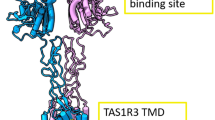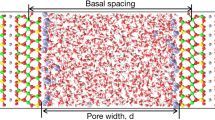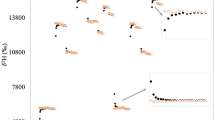Abstract
THE experiment described here indicates that mice arc able to discriminate between D2O and H2O. Two male litter mates of Mus musculus domesticus (strain T–O) were kept in separate Harwell type cages, each fitted with two water bottles. In the experimental cage, one bottle contained D2O and the other glass-distilled H2O, and in the control cage each bottle contained glass-distilled H2O. The bottles were refilled every 24 h and the quantity taken from each during the previous day was determined. The bottles were replaced in the cages in a random manner, following Fisher and Yates's table of random numbers. The experiment was continued for 14 days and Table 1 shows the quantities of liquid taken during that period by the two mice.
This is a preview of subscription content, access via your institution
Access options
Subscribe to this journal
Receive 51 print issues and online access
$199.00 per year
only $3.90 per issue
Buy this article
- Purchase on SpringerLink
- Instant access to full article PDF
Prices may be subject to local taxes which are calculated during checkout
Similar content being viewed by others
References
Thomson, J. F., Biological Effects of Deuterium, 96 (Pergamon Press, 1964).
Shallenberger, R. S., and Acree, T. E., Nature, 216, 840 (1967).
Wiberg, K. B., Chem. Rev., 55, 713 (1955).
Author information
Authors and Affiliations
Rights and permissions
About this article
Cite this article
SMITH, C. Discrimination between Heavy Water and Water by the Mouse. Nature 217, 760 (1968). https://doi.org/10.1038/217760a0
Received:
Issue date:
DOI: https://doi.org/10.1038/217760a0



